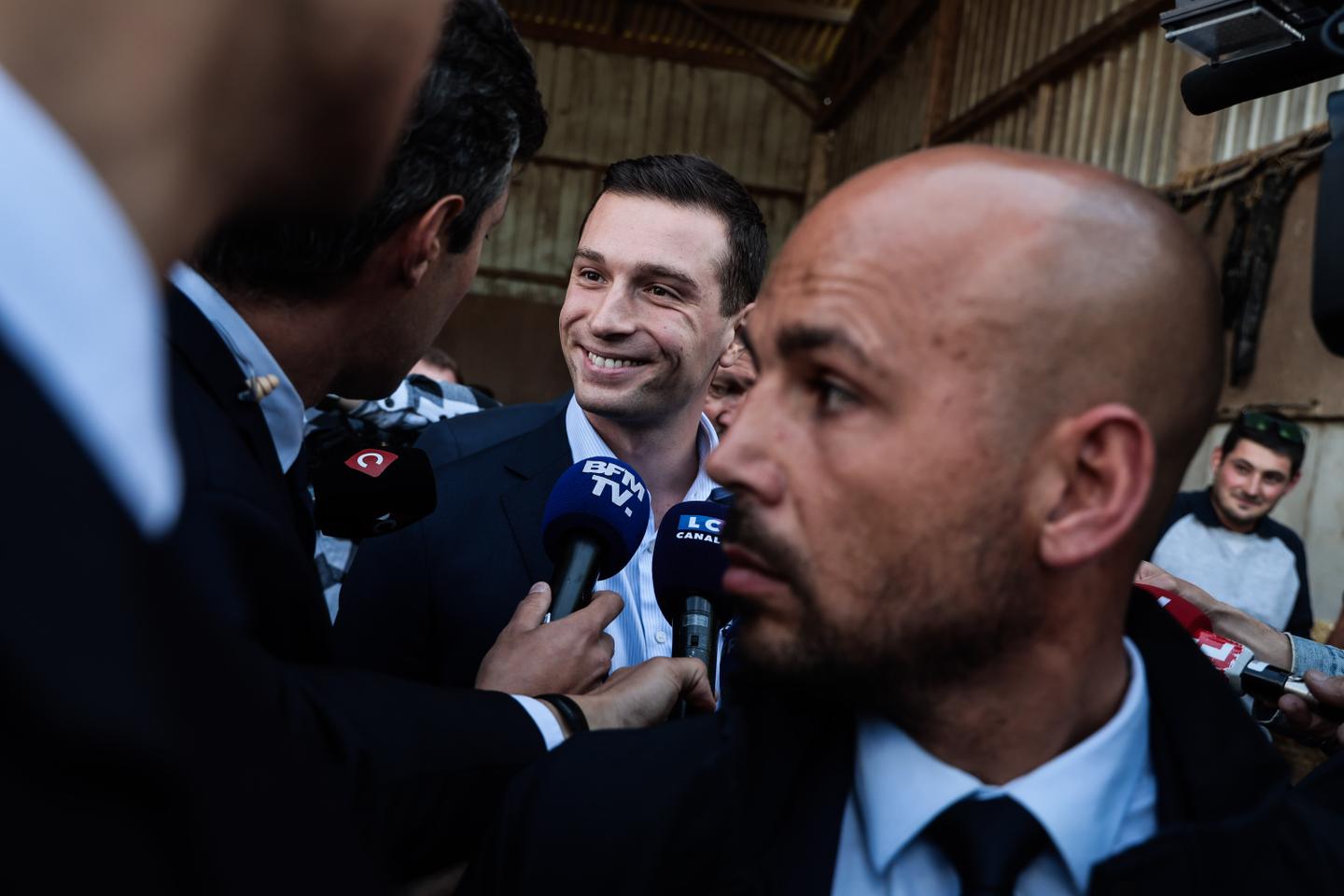


The Rassemblement National (RN) couldn't have dreamed of anything better. With less than a fortnight to go before the first round of the snap elections on June 30, the far-right party is enjoying a situation unseen since its birth in 1972 under the name Front National: It is the favorite for these elections. Its lead candidate in the European elections, the party's president, Jordan Bardella, garnered 31.4% of the vote on June 9. The RN's pole position could be further reinforced by an ongoing double trivialization, due to the attitude of some of its direct opponents – the radical left party La France Insoumise (LFI) and President Emmanuel Macron's camp.
Members of LFI – most notably their leader Jean-Luc Mélenchon – have said "Jordan Bardella is Macron, only worse." In an interview with 20 minutes on Saturday, June 15, Mélenchon himself said that Bardella is "aggravated Macron": " He already has the policies. He's just accepted retirement at 64 (...) Bardella is a social scam, of new racist brutalities, and the ruin of Social Security by depriving it of contributions." LFI hopes to replace the RN as a radical opposition force and show that there are only two camps: It's them or the allegedly indistinguishable ideologies of Macron and Le Pen. While loyal followers of the former Socialist senator unabashedly endorse this view, that is not the case for the rest of LFI's partners in the Nouveau Front Populaire left-wing alliance. The Socialists, Communists and Greens continue to distinguish between the positions of Macron and the far right.
Meanwhile, Macronists say the risks the RN poses to the country are equivalent to those posed by LFI, which until recently was the most prominent force on the left. Several figures in Macron's camp have put the two sides on the same level. Justice Minister Eric Dupond-Moretti, for example, said he would "refuse" to choose in a run-off election between an LFI candidate running under the banner of the Nouveau Front Populaire and an RN candidate. Likewise, Macron's allies often refer to the Nouveau Front Populaire and the RN as "extremes," and have not (yet) given systematic instructions to vote against the far-right party in constituencies where it reaches the second round.
In reality, these two electoral strategies have the same effect: further trivializing the far right. According to LFI, the RN entering government would be a kind of continuity of the seven years since Macron's first victory in 2017. Meanwhile, the Macronists put part of the left on equal footing with Marine Le Pen's party. All these strategies reflect a misconception of the RN.
You have 48.89% of this article left to read. The rest is for subscribers only.
